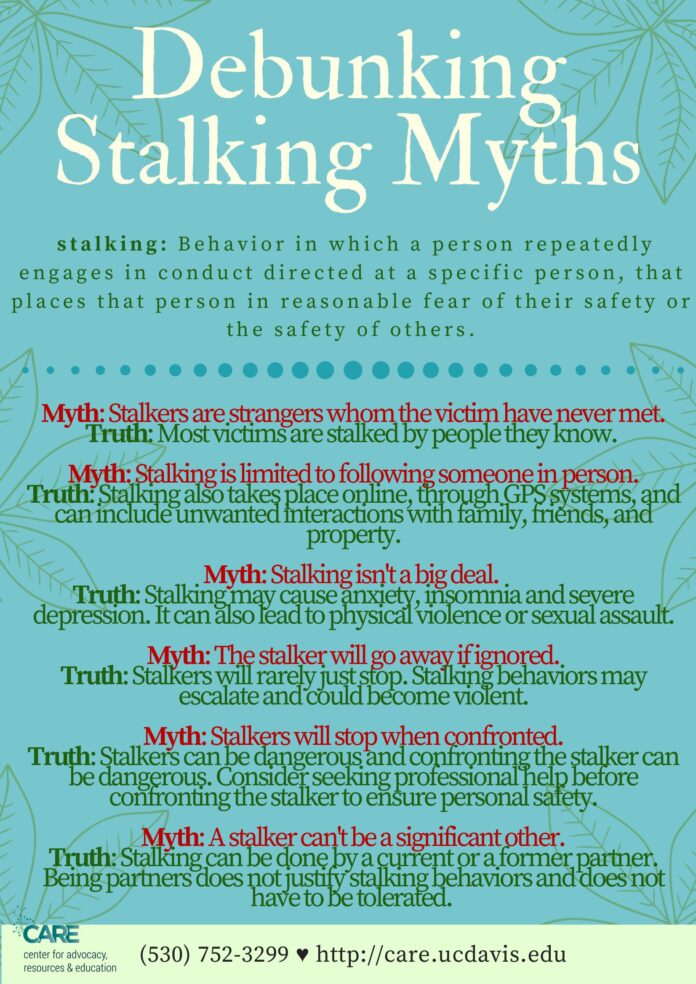Suggested friends on Facebook are not stalkers. The feature uses mutual connections, profile information, and shared activities to make suggestions.
Navigating the labyrinth of social connections on Facebook, users often encounter the ‘People You May Know’ feature. This tool serves as a virtual bridge, connecting individuals to potential friends through complex algorithms. Facebook employs user data to craft a network of suggested acquaintances, analyzing variables like mutual friends, workplace and educational backgrounds, and even joint groups or events attended.
It’s an intelligent guessing game aimed at expanding your social circle. While some users may question the privacy implications of such suggestions, the algorithm’s intent is benign, focused on enhancing user experience rather than invading personal space. It’s important to understand that these friend suggestions are automated and are not indicative of another user’s actions or interests.
Suggested Friends Feature: Friend Or Foe?
The Facebook Suggested Friends Feature sparks curiosity and sometimes concern. It often leaves users puzzled about how certain suggestions pop up. Is it just a helpful tool, or does it have hidden implications? This section delves into the mechanics and myths surrounding this feature.
The Algorithm Behind Suggested Friends
The heart of suggested friends lies in an algorithm. This algorithm looks at various factors:
- Mutual friends
- Profile interactions
- Common networks
It analyzes these elements to identify and recommend potential friends. These suggestions are dynamic and change over time. They aim to make networking more efficient.
Common Misconceptions About The Feature
Many users jump to the conclusion that suggested friends are stalking them. They assume that if someone appears in their suggestions, that person must be viewing their profile frequently. This belief is incorrect. The feature does not use data from those who search for your profile or ‘stalk’ you.
| Misconception | Fact |
|---|---|
| Stalking triggers suggestions | Algorithm determines suggestions |
| Feature invades privacy | Feature uses available data |
In conclusion, the Suggested Friends Feature on Facebook boils down to an algorithm. It is designed to foster connections, not to facilitate stalking or invade privacy.

Credit: www.socialappshq.com
Myth Vs. Reality: Who Really Shows Up?
Social media users often wonder about the faces popping up in their Facebook ‘Suggested Friends’ list. Some worry that these might be stalkers lurking in the digital shadows. This section delves into the myth that surrounds your Facebook suggestions and uncovers the reality of who these individuals really are.
Stalker Scare: Separating Fact From Fear
Tales of stalkers using Facebook’s ‘Suggested Friends’ feature to track users sound like modern-day folklore. These stories create unnecessary panic. Understanding how Facebook algorithms work is key to debunking this myth. They use interaction patterns and profile information to suggest new connections, not the voyeuristic tendencies of shadowy figures. In essence:
- Stalker narratives are mostly unfounded.
- User activities, not stalking behaviors, fuel friend suggestions.
- Facebook emphasizes privacy and user agency in its features.
The Impact Of Mutual Connections
The ‘Suggested Friends’ section often showcases individuals with mutual friends. This is because Facebook assumes a possible connection exists through shared acquaintances. These connections stem from:
- Shared network interactions such as mutual friends, work or education information.
- Similar geographical locations or frequent check-ins.
- Being part of the same Facebook groups or events.
Privacy settings can influence these suggestions as well. Users can control who sees their friend lists and other personal data, thereby impacting the suggestions algorithm.
Privacy Concerns Investigated
Are the friends Facebook suggests actually stalking you? This idea might cause discomfort and raise privacy concerns.
Many users wonder how Facebook makes these suggestions. Let’s uncover the truth behind Facebook’s friend suggestions. Understanding is key to easing our privacy worries.
How Much Does Facebook Know?
Facebook’s algorithms are advanced. They gather data to offer friend suggestions. But does this mean they encourage stalking?
Facebook analyzes multiple factors to find potential friends. These include mutual friends, work, education, and even location data. However, Facebook denies using data implying someone is stalking your profile to suggest friends. Your digital activities generate a complex web of connections, making Facebook’s suggestions seem uncannily accurate at times.
Controlling Your Digital Footprint
It’s crucial to manage your digital footprint to enhance privacy. Here’s how you can take charge:
- Review your privacy settings regularly.
- Limit the amount of personal information shared on your profile.
- Be selective with friend requests.
- Consider the information you permit apps and services to access.
Social media platforms like Facebook hold power over our personal data. Asserting control wherever possible can help protect privacy.
Before accepting friend suggestions or revealing information, remember it’s all part of your digital footprint. Small steps lead to greater privacy.

Credit: www.facebook.com
Understanding User Experiences
Welcome to ‘Understanding User Experiences’ in the intriguing world of Facebook’s friend suggestions. Many ask, are suggested friends on Facebook stalkers? Let’s unwrap the stories and reactions users encounter. These stories shed light on Facebook’s mysterious friend suggestion algorithm.
Anecdotes Of Unexpected Friend Suggestions
Have you ever had a ‘How did Facebook know?’ moment? Users report unexpected friend suggestions. They see people from past flights or brief encounters. Others notice individuals they’ve searched for online. Some even find private profiles they’ve never interacted with.
- Chance meetings: Users meet someone at an event. Next day, they appear on Facebook.
- Online interactions: A person clicks a profile once. Facebook suggests them as a friend.
- Shared networks: A friend of a friend shows up, despite no direct communication.
User Reactions To Suggested Friends
User reactions to Facebook’s friend suggestions vary widely. Some find it helpful, reconnecting with long-lost friends. Others feel uneasy, calling it an invasion of privacy. Opinions split as suggestions bring both pleasant surprises and privacy concerns.
| Reaction Type | Examples |
|---|---|
| Positive | Reconnecting with old classmates or colleagues. |
| Negative | Seeing people they hoped to forget or who are indeed strangers. |
| Neutral | Indifference, as users ignore suggestions entirely. |
Emotions range from delight to discomfort. Users share experiences of serendipitous connections and inexplicable recommendations.
Enhancing Your Suggested Friends List
The link between suggested friends on Facebook and real-life connections can feel like a mystery. Facebook’s algorithms work quietly behind the scenes, always observing interactions to connect you with potential friends. Let’s demystify this feature and take control.
Tips To Improve Relevancy
Here are straightforward strategies to tailor your Facebook experience:
- Regularly update your profile with new job positions and location changes.
- Join groups and engage in communities that mirror your interests.
- Use Facebook’s search function to explore content and profiles aligned with your hobbies.
These actions signal Facebook algorithms to connect the dots between you and others in similar spheres, refining your suggested friends list.
Managing Settings For Better Privacy
Privacy settings can also shape your suggested friend encounters:
| Setting | Action | Outcome |
|---|---|---|
| Profile Visibility | Limit who can see your friends list | Fewer friend suggestions based on your current friends |
| Contact Information | Review who can look you up using email or phone number | Reduces random friend suggestions |
| Tagging | Control who can tag you in posts and photos | Prevents unwanted connections via tags |
Navigate to Facebook’s settings and adjust these parameters to guard your privacy. This transparency discourages unwelcome friend suggestions, keeping your online circle close-knit.

Credit: www.dawsonwomensshelter.com
Frequently Asked Questions Of Are Suggested Friends On Facebook Stalkers
Does Facebook Friend Suggestion Mean They Looked At Your Profile?
Facebook friend suggestions do not necessarily mean someone viewed your profile. They are based on mutual friends, networks, and shared interests.
Does Facebook Suggest People Who Stalked You?
Facebook does not openly disclose that its friend suggestions include people who have viewed your profile, or “stalked” you. The platform’s suggestion algorithm primarily uses mutual friends, work and education information, networks, and Facebook activity to generate recommendations.
Why Does Someone Keep Popping Up In My Suggested Friends On Facebook?
Someone repeatedly appears in your suggested friends on Facebook due to shared connections, interactions, or overlapping networks. Facebook’s algorithm detects these common factors and suggests you may know them.
Why Is The Same Person Always At The Top Of My Suggested Friends List?
The same person tops your suggested friends list due to frequent interactions, mutual friends, or similar interests, signaling a high relevance to you on the platform.
Conclusion
Understanding the nuances of suggested friends on Facebook clarifies they’re not stalkers. These recommendations stem from algorithms analyzing mutual connections and shared interests. It’s important to remember that online privacy settings are in your control. Staying informed helps manage your digital footprint securely and confidently.
Trust your ability to maintain online boundaries.





